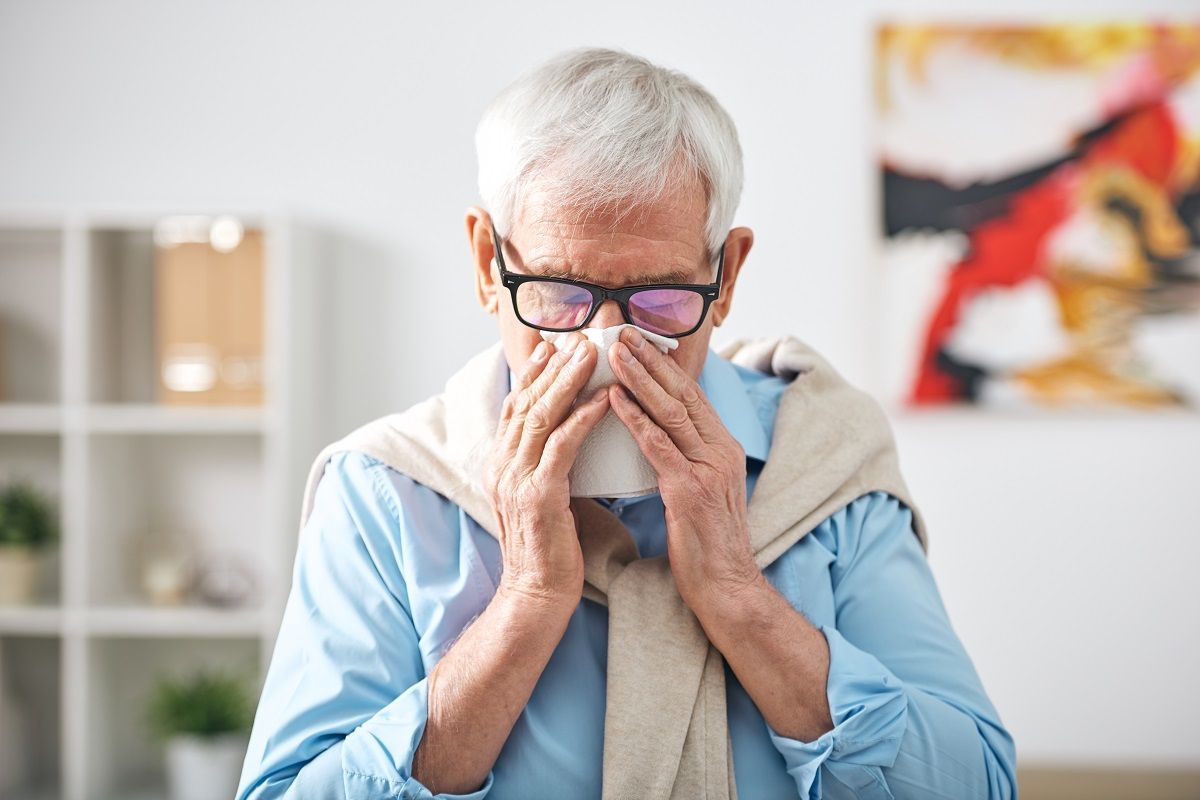Our Location
Elige tu idioma:
Signs and Treatments for Sarcoma

Sarcoma is a rare type of cancer that can develop in any part of your body.
Contrary to carcinoma, which commonly occurs in the breasts, prostates, and gastrointestinal tracts — sarcomas are less understood, and their rarity makes them harder to detect.
This article will discuss sarcoma, its symptoms, and treatments.
What is Sarcoma?
Generally, a sarcoma develops in bone, connective tissue, blood vessels, nerves, and tissue surrounding bones and joints. It is one of the rarest types of malignant tumors. The term "sarcoma" also refers to a broad group of cancers that can grow in both the bones and the connective tissues (soft tissue sarcoma). This is where most sarcomas occur.
There is a
40% incidence of soft tissue sarcoma in individuals over 65. Still, this group is primarily excluded or under-represented in clinical trials and is treated far less than younger patients. Likewise, the
National Cancer Institute estimates that nearly 12,750 Americans will likely be diagnosed with soft tissue sarcoma in 2019 and that 5,270 will die from it.
Types of Sarcoma
While there are more than 50 types of sarcoma, they can be categorized into two groups: soft tissue sarcomas and bone sarcomas.
- Bone Sarcomas
A bone sarcoma begins as a tumor in the bone. This type of cancer typically affects people under 35 years old. Unfortunately, children are the most common victims of bone sarcoma.
Types of bone sarcomas include:
- Chordoma. This type of cancer can occur anywhere along the spine.
- Osteosarcoma: This affects the bone and is the most common type.
- Ewing sarcoma: It can occur in bones or soft tissues.
- Chondrosarcoma: A tumor that begins in cartilage.
- Fibrosarcoma: This is cancer of fibrogenic tissue, a type of connective tissue.
Bone sarcoma is much easier to treat in otherwise healthy people whose cancer has not spread. It is estimated that
6 out of 10 people diagnosed with bone cancer will live for at least five years following their diagnosis, and many of them may be cured completely.
- Soft Tissue Sarcomas
A soft tissue sarcoma develops in your muscles or other connective tissues. It is rare for soft tissue sarcomas to occur in children. According to the
National Health Service (NHS), sarcomas of the soft tissue are often indistinct in the beginning until they grow or spread.
Below are types of soft tissue sarcoma depending on which tissues they affect or where they occur.
- Fibrosarcomas: These are cancers of the connective tissue or fibroblasts.
- Mesenchymomas: These are rare and combine the characteristics of other types of sarcomas. They can occur anywhere on the body.
- Angiosarcoma: A type of cancer that affects the blood or lymph vessels.
- Leiomyosarcoma: This form of cancer affects smooth muscle in organ walls, usually in the abdomen.
- Kaposi's sarcoma: A skin sarcoma that also occurs in other tissues.
- Synovial sarcoma: This may be a tumor that originates from stem cells.
- Schwannoma: A tumor that affects the nerve coverings.
- Liposarcoma: This develops behind the knee, in front of the thigh, or behind the abdomen.
- Rhabdomyosarcoma: This is a tumor that develops in the skeletal muscles.
- Myxofibrosarcoma: Often occurs in older adults' arms and legs; it affects the connective tissue.
- Neurofibrosarcoma: A cancerous growth on the nerves' protective lining.
- Gastrointestinal stromal tumor: It affects gut neuromuscular cells.
- Vascular sarcoma: It develops in blood vessels.
The incidence of soft tissue sarcomas is higher in adults. Diagnoses of bone sarcoma are more common in children, teenagers, and people over 65.
Signs of Sarcoma
It depends on the tumor's location and what symptoms you will experience. Some sarcomas, for instance, may not produce noticeable symptoms at the beginning.
The early stages of soft tissue sarcomas may not show any symptoms. The
tumor may cause the following symptoms as it grows:
- A lump or swelling that is noticeable
- If a tumor presses on a nerve or muscle, there is pain
In bone sarcoma, the following symptoms may include:
- Bone pain
- The affected area feels tender and swollen
- The bone becomes weakened, resulting in a fracture
- Unintended weight loss
- Feeling tired
Sarcoma Treatments
The treatment you receive depends on your type of sarcoma, its location, and whether it has spread to other body parts. Doctors can prescribe the following treatments for soft tissue or bone sarcoma:
- Surgery
The most common treatment for sarcoma is surgery. It takes the tumor out of your body. The surgeon usually takes a tissue sample for a biopsy during the procedure. It's also a way to confirm the tumor's identity.
Furthermore, the cancer cells in osteosarcoma can usually be removed just with a surgical procedure, so you won't have to lose your arm or leg.
- Radiation Therapy
This procedure can shrink the tumor before surgery or kill cancer cells left behind after surgery. It is also the best alternative if surgery isn't available.
- Chemotherapy
Soft tissue sarcomas tend to respond better to chemotherapy than bone sarcomas. In cases where cancer has spread, it is often the first treatment used to kill cancer cells that remain after surgery.
- Palliative Care
Cancer patients can receive palliative care when they are suffering from serious illnesses. A palliative care professional may be a doctor, nurse, social worker, nutritionist, or other professional. Their goal is to help you relieve symptoms and manage side effects resulting from treatment.
- Clinical Trials
The objective of a clinical trial is to determine the efficacy and safety of new cancer treatment. Depending on your diagnosis, you might be able to participate in a clinical trial.
- Targeted Therapy
The targeted therapy works by blocking the action of proteins in cells called kinases, which contribute to the growth of cancer cells. This treatment prevents the spread of cancer cells and limits harm to healthy cells.
For your doctor to find the most effective treatment, they may need to run tests to identify your tumor's genes and proteins. It assists doctors in selecting the most effective treatment for each patient.
Ocana Medical Cares
Sarcoma is not something to be taken lightly. The treatment and prognosis you may have if you have been diagnosed with sarcoma are determined by a variety of factors explained by your healthcare provider. In the same way that sarcomas are diverse, so are the treatment options and likely outcomes.
Ocana Medical Care, located in Tampa, FL, aims to bring you as much information as possible to keep you healthy. We're in this together. #ocanacares
“Respect. Compassion. Quality. Integrity. These are the values on which Ocana Medical Center was built. Our aim isn’t just to treat you today. We hope to earn your trust and be your healthcare provider for life.”
©2023 Ocana Medical Group, Inc.
USEFUL LINKS
GET IN TOUCH
Call Us Today
Send us Email
Our Location
Ocana Medical Center | All Rights Reserved.












